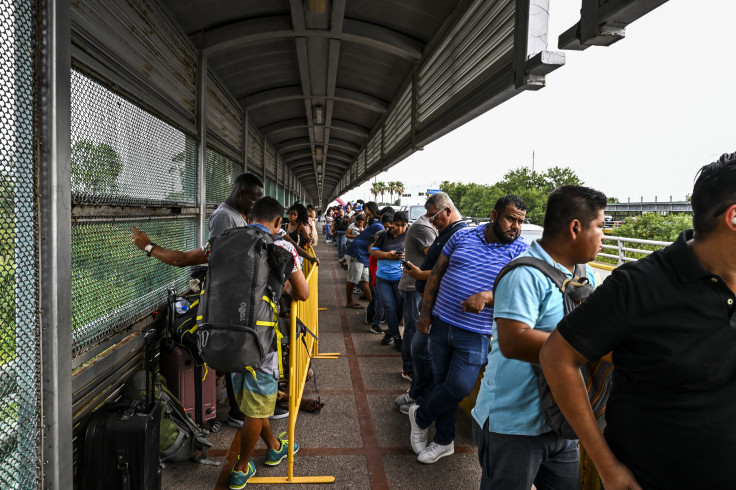
The Trump administration has reportedly authorized Immigration and Customs Enforcement (ICE) officials to expedite the deportation of migrants admitted into the country legally under Biden-era programs.
According to a memo obtained by The New York Times and signed by acting head of the Department of Homeland Security Benjamine C. Huffman, deportation powers previously reserved for border encounters are expanded to the programs that allowed over 1.4 million people to enter the U.S. temporarily.
The programs in question are the CBP One app, which facilitated appointments for migrants to enter the U.S. legally and request asylum at a port of entry, and an initiative admitting individuals from Cuba, Nicaragua, Venezuela, and Haiti under temporary parole status, known as CHNV.
The memo instructs ICE officials to prioritize the removal of migrants who have been in the U.S. longer than a year but have not applied for asylum. It also grants authority to terminate parole status and expedite deportations, bypassing immigration courts, if migrants are already in the formal deportation process. Those who have been in the country for over two years for formal deportation proceedings can also be swiftly expelled.
The policy is already facing legal challenges. The American Civil Liberties Union filed a lawsuit claiming the decision violates federal law and constitutional rights. ACLU lawyer Anand Balakrishnan characterized the move as an attempt to fuel mass deportations while circumventing due process.
Republicans heavily criticized CHNV during the Biden administration, releasing in November a report alleging "rampant fraud and abuse" within the program.
"Through CHNV, up to 30,000 aliens each month—who otherwise have no basis to enter the country and who have "a supporter" in the United States—can bypass the U.S. border and fly directly into the country on commercial flights to be granted parole for two years," said the House Judiciary GOP through it's official X account.
Citing an internal Department of Homeland Security (DHS) analysis, the report itself highlights evidence of fraudulent activity, including repeated use of Social Security numbers, addresses, and phone numbers in supporter applications. The analysis also identified instances of sponsorship applications submitted on behalf of minors and disproportionate numbers of females, raising concerns about potential human trafficking.
The report goes on to contend that DHS has approved supporters with fraudulent documents or those with questionable financial means, including individuals who rely on public assistance. Additionally, it claims some approved supporters were themselves temporary visa holders, parolees, or recipients of Deferred Action for Childhood Arrivals (DACA), creating a potential for chain migration. The Biden administration briefly suspended the program to address allegations but resumed it weeks after.
© 2025 Latin Times. All rights reserved. Do not reproduce without permission.





